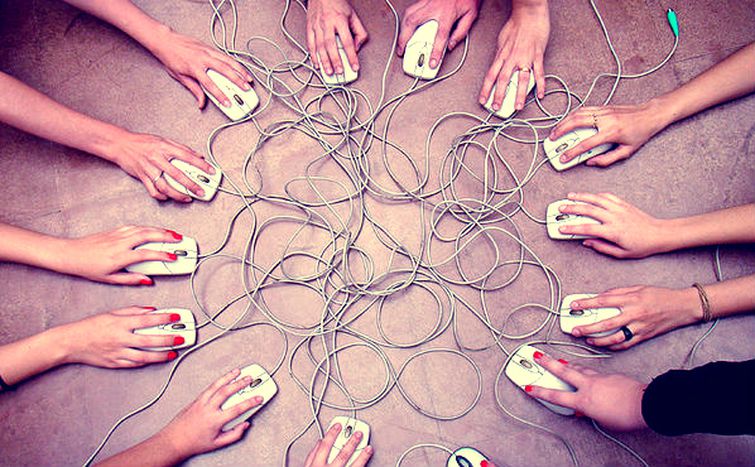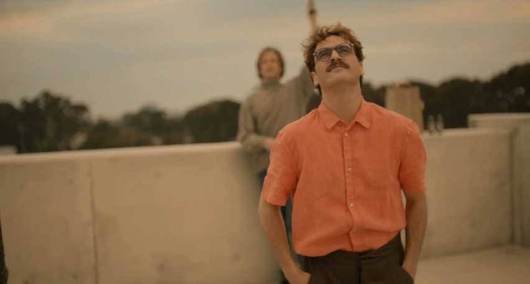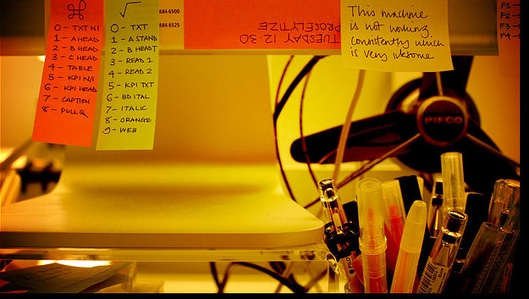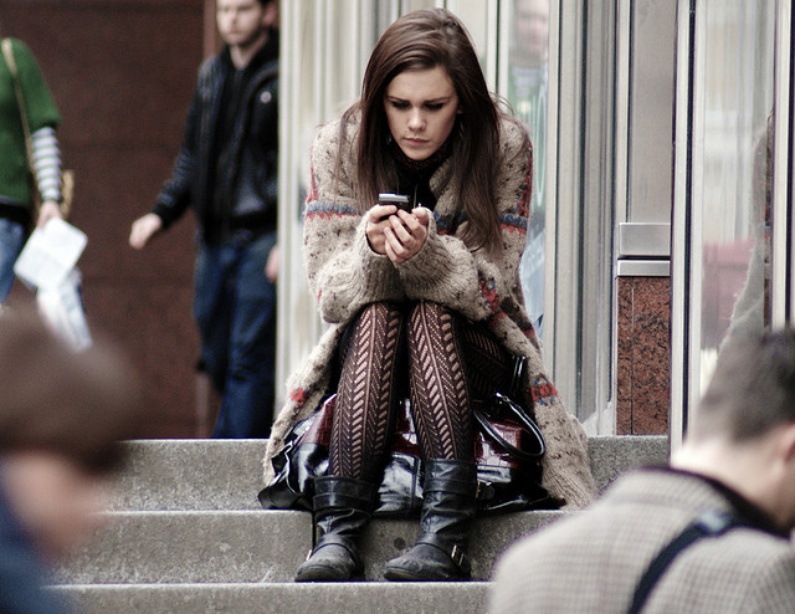
Aimlessness in a Globalised World
Published on
To be aimless in a situation, a locality, and a space and time can be grueling. We search for stimulation, some sort of gratification that we think we are entitled to. But what does gratification actually mean and in what context should we pursue it? A commentary.
Recently I watched the movie Her (2013), directed by Spike Jonze, about a man named Theodore (Joaquin Phoenix) who lives in a technology-laden world set in the future and can't stop dwelling on the past. His lamentations about his divorce force him to retreat into a world filled with video games and internet porn. Other than his best friend from college (Amy Adams), he has no contacts to the outside world, aside from having the semblance of contact with the world through the internet. He feels helpless, losing control over his life. To compensate, he buys an operating system from a company that promises its product is the solution to all his problems. An artificially intelligent OS (voiced by Scarlett Johansson) — one that he winds up falling in love with. But what does that suggest about the character, Theodore, and what implications does this story communicate for our own technology-saturated lives?
Official film trailer of HER (2014) by American director Spike Jonze.
I've thought a lot about what it means to be a global citizen, especially since I've been translating for Cafébabel, to be virtually connected with anyone in the world with internet access. We get glimpses into the lives of others, lives that we may never encounter. But what do these glimpses translate into? Longing? Envy? Or maybe a sense that the life we're currently leading isn't as fulfilling as we think it should be?
In Her the OS 'Samantha' asks Theodore what's wrong as he lays in bed, unable to sleep. He tells her that he fears that the experiences he'll have in the future might never live up to the way he had felt about similar experiences in the past. Theodore clearly suffers from nihilism. He simply can't see the point anymore. Of course he's hurt because of his divorce, but that's on the surface. Overstimulated by technology, he is too connected to a virtual world to be able to appreciate the subtler things in life. Over the course of the film, Samantha reminds him of the importance of being excited about life, that life is something that we can be fascinated by in our daily lives, even if we feel we've already experienced everything to its fullest.
Great expectations of a grand life
 Recently I spoke to a friend who at one point in my life also taught me this lesson. Although she has never been an internet-junkie, she has lived all over the world and arrived at a similar nihilistic question: What's the point? What does it all mean? The irony when we spoke, of course, was that at that moment she was going through a similar form of nihilism that the main character Theodore goes through in the film. Her partner, someone she had planned the rest of her life with, had broken up with her.
Recently I spoke to a friend who at one point in my life also taught me this lesson. Although she has never been an internet-junkie, she has lived all over the world and arrived at a similar nihilistic question: What's the point? What does it all mean? The irony when we spoke, of course, was that at that moment she was going through a similar form of nihilism that the main character Theodore goes through in the film. Her partner, someone she had planned the rest of her life with, had broken up with her.
 To draw the comparison, nihilism isn't simply the post-traumatic experience of a breakup: it's the over-stimulation of the expectations of how grand life could be. The Internet and technology have both produced that feeling in many people, bombarding them with imagines of distant lands and glamorous people. There is an over-dependence on the internet and technology, which in turn stimulates the longing for experiences. The irony in the film is that it was a piece of technology that taught Theodore this lesson, but only once she was no longer in his life.
To draw the comparison, nihilism isn't simply the post-traumatic experience of a breakup: it's the over-stimulation of the expectations of how grand life could be. The Internet and technology have both produced that feeling in many people, bombarding them with imagines of distant lands and glamorous people. There is an over-dependence on the internet and technology, which in turn stimulates the longing for experiences. The irony in the film is that it was a piece of technology that taught Theodore this lesson, but only once she was no longer in his life.
The circumstances will never bE 'just righT'
There is a mental compartmentalisation that arises when engaging with technology or the internet. There is the separation of "here" and "there," of "where I am now" and "where I could be, were the circumstances just right." But as any of the great religions and philosophies have taught, the circumstances will never be just right. There will always be a "here" and "there." So, instead of pining for a life that might never exist, shouldn't we try to find a way to resist the restlessness and aimlessness that tries to overrun our lives when we feel like we need instant-gratification?
It's easy to do a quick and instantly-gratifying Google search for something that we think might placate us, but couldn't that gratification come from something, anything at all, from the things within our immediate surroundings, or maybe even something from within ourselves? To me, living in the world does not mean yearning for other modalities of thinking and living, but rather embodying our most authentic selves so that when faced with another global citizen, we can inspire them to live to their fullest.
 Ever since I've been translating for and reading cafébabel, there have been times when I've longed to be back in Europe, in places and situations of distant lands that seem hip, artistic, inspiring, politically engaging and avant-garde. Although this might be a result of me living in California, I'm sure there are plenty of people in Europe who have read the same articles I have and had the same longing for a scene that seemed fresh, or the longing to engage in political forums and debates.
Ever since I've been translating for and reading cafébabel, there have been times when I've longed to be back in Europe, in places and situations of distant lands that seem hip, artistic, inspiring, politically engaging and avant-garde. Although this might be a result of me living in California, I'm sure there are plenty of people in Europe who have read the same articles I have and had the same longing for a scene that seemed fresh, or the longing to engage in political forums and debates.
Whatever the case may be, the stories that seem appealing to us are appealing because people made the events, discourses, artistic movements happen. These people didn't idly sit back and read how others were changing the world: they were changing it, shaping it, moulding it. This kind of active creativity — active engagement with your immediate surroundings — serves as the antidote to the aimlessness of a globalized world. It's the quality we cherish most in others. And ultimately, if we ourselves take on this quality, it will bring about the healthiest and most enjoyable form of gratification.



